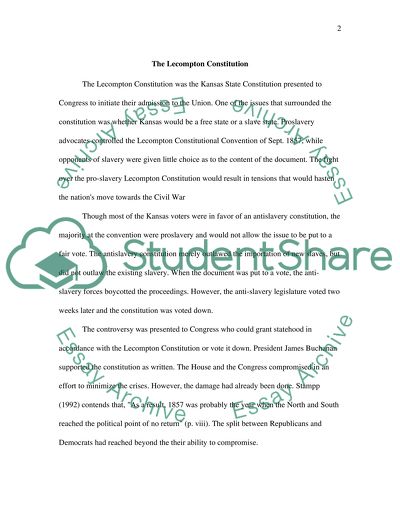Cite this document
(“Dred Scott v. Sanford,The Lecompton Constitution, Freeport Doctrine Essay”, n.d.)
Retrieved from https://studentshare.org/miscellaneous/1510380-dred-scott-v-sanfordthe-lecompton-constitution-freeport-doctrine-and-fugitive-slave-law-of-1850
Retrieved from https://studentshare.org/miscellaneous/1510380-dred-scott-v-sanfordthe-lecompton-constitution-freeport-doctrine-and-fugitive-slave-law-of-1850
(Dred Scott V. Sanford,The Lecompton Constitution, Freeport Doctrine Essay)
https://studentshare.org/miscellaneous/1510380-dred-scott-v-sanfordthe-lecompton-constitution-freeport-doctrine-and-fugitive-slave-law-of-1850.
https://studentshare.org/miscellaneous/1510380-dred-scott-v-sanfordthe-lecompton-constitution-freeport-doctrine-and-fugitive-slave-law-of-1850.
“Dred Scott V. Sanford,The Lecompton Constitution, Freeport Doctrine Essay”, n.d. https://studentshare.org/miscellaneous/1510380-dred-scott-v-sanfordthe-lecompton-constitution-freeport-doctrine-and-fugitive-slave-law-of-1850.


